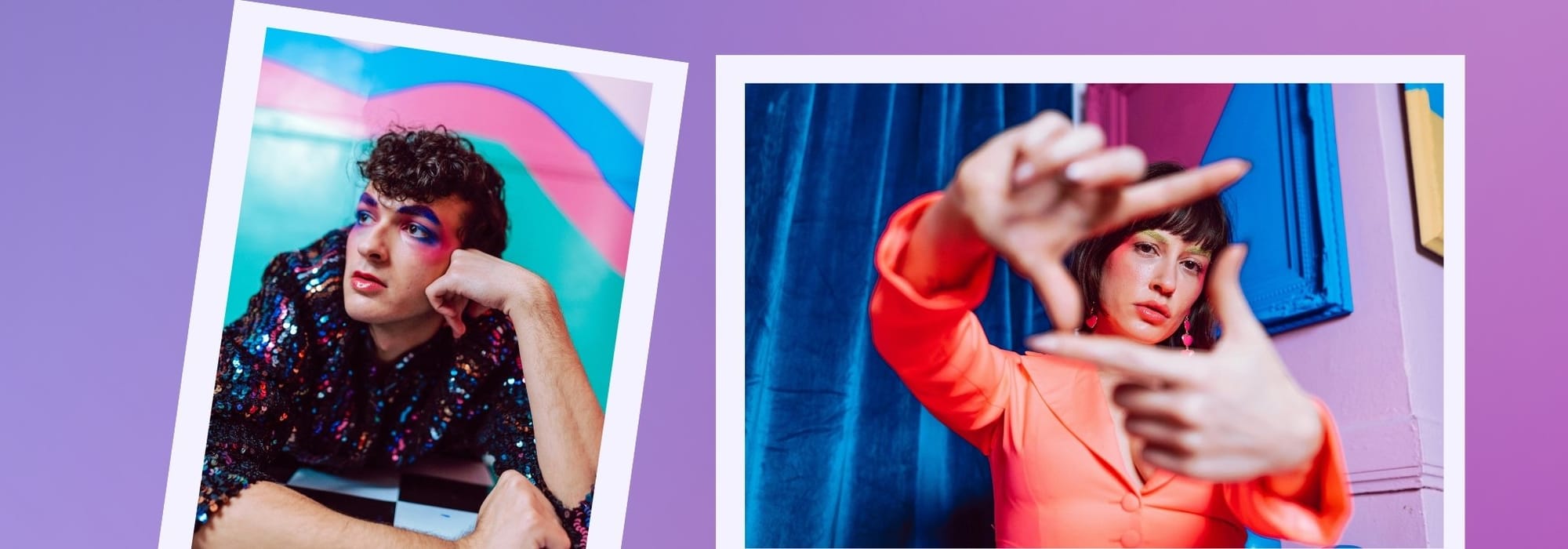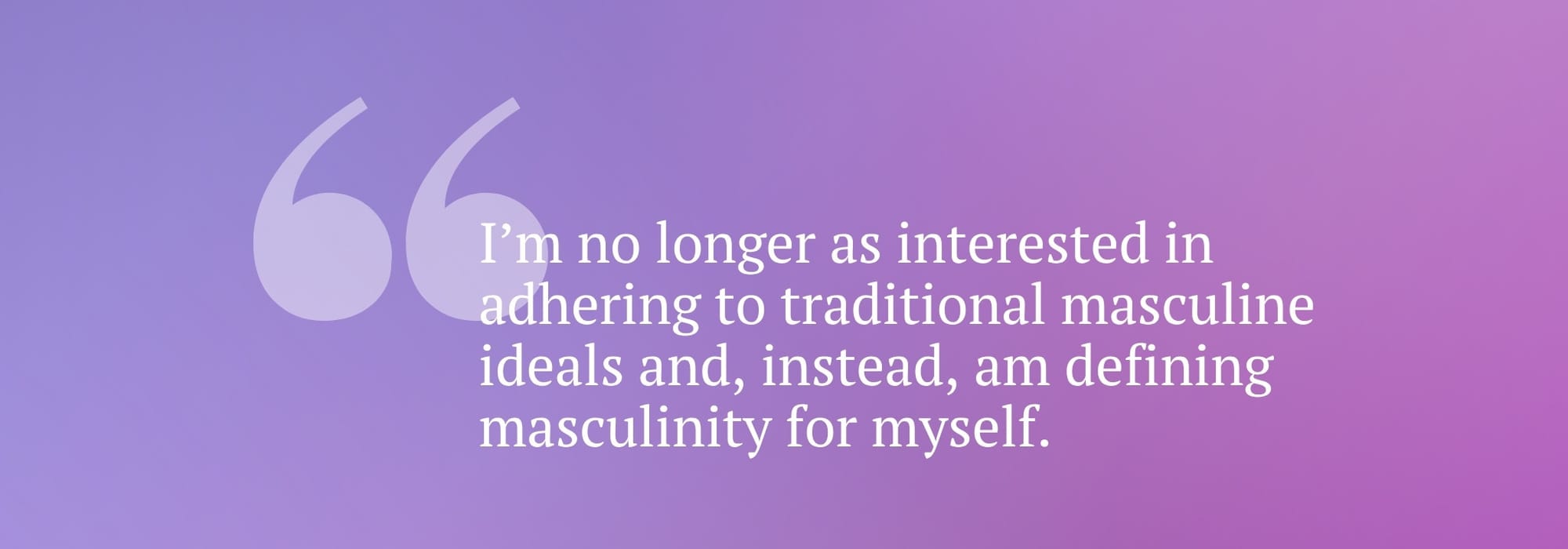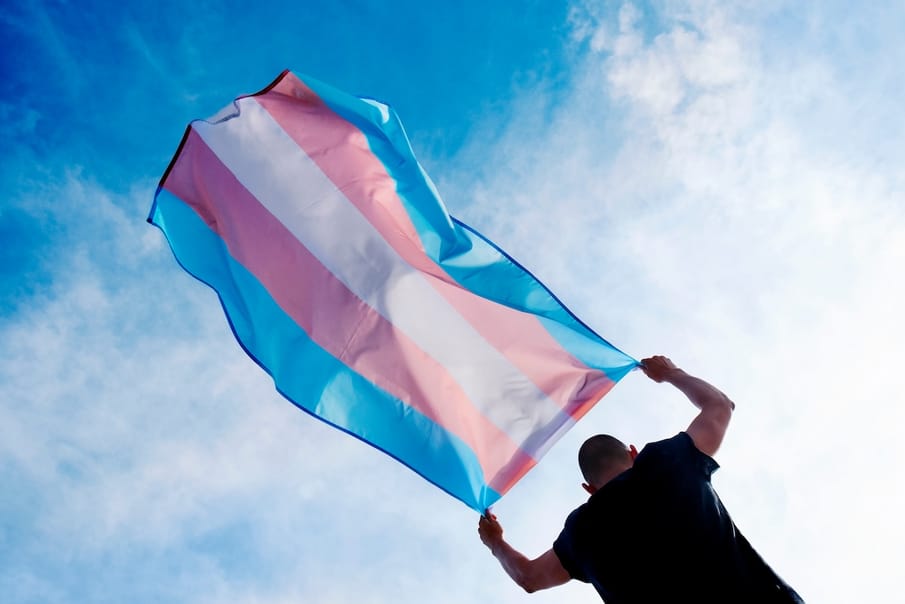Mainstream narratives often focus on trans suffering, but there can also be so much joy in being trans, as Quinn Rhodes explains…
You might have heard about gender dysphoria – the discomfort of feeling like the sex you’re assigned at birth, and how your gender is perceived by others, doesn’t align with your true self. As a trans person, I’ve experienced a lifetime of dysphoria, long before I understood that the skin-crawling, self-loathing I felt was related to gender. But if gender dysphoria is the wrongness I feel within myself and my body, euphoria is the glorious rightness.
The term ‘gender euphoria’ is used by trans and non-binary people to express the joy, acceptance, and satisfaction, that we can experience when we feel aligned with our gender. Feeling good, or even comfortable, in our gender isn’t a given for us – so for those that do, it can be overwhelming. The first time I experienced gender euphoria, I broke down crying in my girlfriend’s arms. I wasn’t sad; I was happy in a way I didn’t know was possible.
When I was first exploring my gender, about six years ago, I started to feel euphoria specifically about my shoulders.
They didn’t become more ‘masculine’ overnight when I figured out I was a man, but I began to see that part of my body through a new lens. I discovered how affirming, how masculine, it felt to square them, feeling the muscles move beneath my skin, stretching out as I stood tall. How I began to hold my shoulders made me feel strong and powerful – in my body, and in who I am.
Figuring out what might bring you gender euphoria can take time, and courage, to explore – but it’s important to know that if you haven’t or don’t experience gender euphoria, that doesn’t make you any less trans. Before asking a barber to shave my head for the first time, I reasoned that it would grow back quickly if I hated it. Three years on, I have to say, I still feel a rush of joy when I touch the velvet softness of my freshly-shaved head.
Gender affirming compliments have helped me, too. I blushed when my girlfriend called me ‘handsome’ for the first time, and I still feel a warm glow when I’m referred to as their ‘boyfriend’.

For me, language has been a powerful tool. I intentionally use the word ‘chest’, which doesn’t erase my dysphoria, but does avoid the discomfort of more feminine-coded language. Wearing a binder – a top designed to compress your chest so it appears flatter – also helps me. I want top surgery (which, as a trans man, would be a gender-affirming mastectomy) and I can’t wait until I look in the mirror and see a flat chest with top surgery scars.
It’s important to note that not all trans people want surgery. In fact, not all trans people even experience gender dysphoria. Despite this, in the UK, trans people need a diagnosis of gender dysphoria to apply for a Gender Recognition Certificate (GRC) – which is how trans people can obtain legal recognition of their gender. And that diagnosis, as well as almost all gender-affirming care, can feel inaccessible for many trans people, especially when you consider the lengthy waiting lists. NHS data, sourced by the BBC, suggests that waiting times at the majority of NHS gender identity clinics in England have “at least doubled between 2018 and 2023”.
The same BBC report revealed that, towards the end of 2023, 31,000 trans people were on waiting lists for their first appointment at a gender identity clinic in England. Despite the target of 18 weeks from referral to proceed through to initial care, patients are waiting an average of 382 weeks (more than seven years) from their initial referral.
The gender recognition process has been criticised by trans people and politicians alike, with former SNP deputy leader Mhairi Black calling it “deeply invasive, traumatising, unnecessary, and dehumanising”. This delay in receiving support can have severe repercussions, with a 2024 study in The Lancet noting that “long waiting was associated with a range of psychosocial distress”, and 2022 research in European Psychiatry highlighting that “longer waiting times contributed to feelings of low mood and suicidal ideation, as well as decreasing overall quality of life”.
Of course, just like surgery, not every trans person wants hormone replacement therapy (HRT), but personally, starting testosterone three years ago saved my life. At the time, I was suicidal, and desperately needed the control over my own life and body that HRT gave me. I’ve wanted to take testosterone since before I’d figured out my pronouns (he/him, by the way), and I’m so much happier now. I watched as my body changed and my voice got deeper, and my discomfort lessened. I found euphoria first in my thickening sideburns, in the snail trail of hair down my belly, and my no-longer-scraggly beard.

As my body has changed, I’ve found myself binding less frequently. In addition to being trans, I’m autistic and struggle with sensory overwhelm. My dysphoria about my chest hasn’t gone, but I’ve learned that prioritising my comfort is more important to me right now. Other people don’t get to define my gender, and my chest doesn’t make me any less of a man. In general, I’m no longer as interested in adhering to traditional masculine ideals and, instead, am defining masculinity for myself.
Nowadays I’m secure in my gender, but I still get surprised by unexpected moments of gender euphoria. Last week, I went to a trans and non-binary only swimming session, facilitated by an organisation which helps trans people participate in sports. I hadn’t been swimming in nine years, but this session allowed everyone to swim topless, regardless of their gender assigned at birth.
Walking from my changing cubicle to the pool was exhilarating. I couldn’t stop smiling as I went down into the water, my body feeling lighter as my chest was submerged.
Narratives about trans people – especially in the current media landscape – are rarely written by trans people ourselves. We’re told trans lives are miserable: full of dysphoria, a constant struggle. But there’s no universal trans experience, no ‘right way’ to be trans – and while there are countless hardships that you might face, those don’t define being trans. I don’t want to argue that existing in a transphobic society isn’t hard, but if being trans was a choice, I would choose it every time.
The happiness I experience as a trans person, the euphoria and joy I’ve discovered in my queer masculinity, is so much more intense than I thought I could ever feel. When I first realised I was trans, I discovered that it was so much easier to love myself with my new pronouns. It still is today.


Comments